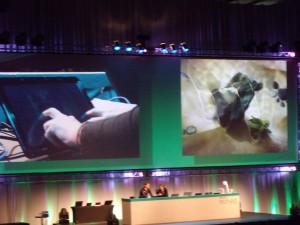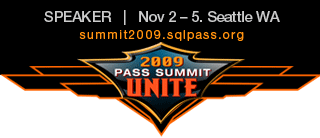I finally stopped dithering over the small details and get my submissions for the PASS conference in, with about 5 hours remaining to the original deadline.
Since it seems to be somwhat of a tradition this year to post the details (As Brent, Jack and Michelle have done), I’ll list mine.
Lies, damned lies and statistics
Ever wondered what the things called statistics are, why they’re important and what needs to be done to maintain them? If so, this session is for you!
In this session we’ll take a look at what statistics are and why SQL keeps them; at how SQL maintains them and under what circumstances that maintenance is insufficient; and we’ll look at the problems that result when they are inaccurate. Finally we’ll cover some suggestions and options around maintenance of statistics when the automatic maintenance is not sufficient.
Delving the depths of the Plan Cache
Do you want to want to know more about how your server is running? Do you want to be able to see how queries are running within the server, both now and earlier? If so, this session is not to be missed.
In this session we’ll take a look at some of the information that is available within SQL relating to query optimisation and query execution. We’ll look at some of the Dynamic Management Views and Dynamic Management Functions that expose data from the plan cache, some relevant Trace events and we’ll take a brief look at what Extended Events offers in this area.
Insight into Indexes
Are your indexes being used? Are there any that are taking disk space but aren’t contributing usefully to the server’s workload? Are there queries that could benefit from indexes that don’t exist?
In this session, we’ll be looking at the index-related dynamic management views to see what information SQL makes available on index usage and missing indexes, how that information can be used and what the shortfalls of those DMVs are
So now we get to sit until end of May and see who’s in and who’s not.






